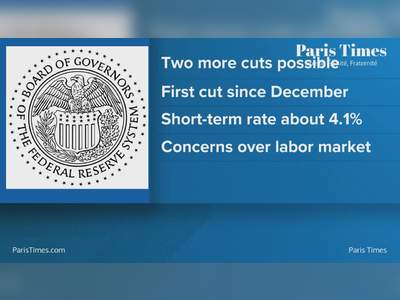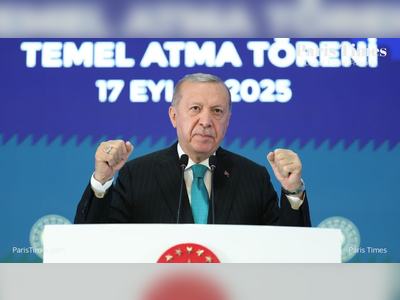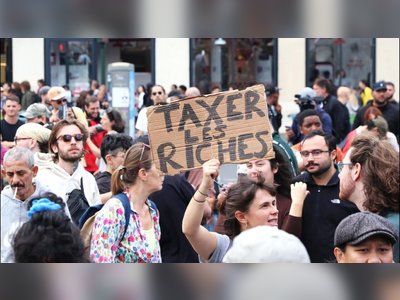European manufacturers against ban on polluting cars: "The industry may collapse"
Top executives from Stellantis, BMW, and Mercedes warn the European Union’s planned 2035 ban on gasoline cars could devastate jobs and competitiveness, while China surges ahead with over 16.5 million charging stations.
Last week, the Munich Motor Show opened in Germany in an unusual format.
Once held in Frankfurt, the event has transformed from a traditional car exhibition into a mobility showcase — and now a battleground between Chinese and European manufacturers.
The show displayed many new models, some destined for Israel, but the long-term issue looming over the industry is the European Union’s planned ban on the sale of polluting cars from 2035.
Europe currently regulates vehicle emissions through the “Euro” standard, which tightens every few years with the ultimate goal of reaching zero emissions by 2035.
That means only electric or, less likely, hydrogen cars will be permitted for sale.
There has been speculation that the EU might allow flexibility, such as synthetic fuels or exceptions for commercial vehicles, but so far nothing concrete has been decided.
For European manufacturers, the timeline is daunting.
Ten years is a short horizon in the automotive world, where new models typically appear once a decade.
While many European firms already produce electric cars, they are far from bestsellers.
Meanwhile, Chinese automakers are seizing the opportunity by flooding Europe with electric vehicles, while keeping gasoline models for developing markets such as Africa and Israel.
At Munich, industry leaders openly challenged Brussels’ plan.
Stellantis CEO Antonio Filosa said the EU “must show flexibility” on the 2035 ban, stressing the importance of strategic dialogue and warning that current policy unfairly shifts pollution outside Europe while doing little globally.
BMW’s global CEO Oliver Zipse echoed that sentiment, calling the 2035 target a “major mistake”.
He argued the mandate will push pollution into the supply chain as factories accelerate production, while the oil industry faces no comparable obligations.
Mercedes-Benz CEO Ola Källenius, who also heads ACEA, the European manufacturers’ association, warned that without a “reality check,” Europe could “accelerate into a wall” and risk industry collapse.
The contrast with China is stark.
Beijing recently announced the country has surpassed 16.5 million charging points, a fifty-three percent increase in a year, supported by heavy subsidies under its latest five-year plan.
Europe, by comparison, offers weaker regulatory backing, leaving manufacturers lobbying for softer targets.
The stakes are high: Mercedes employs about 175,000 people worldwide, Stellantis more than 125,000.
A rapid shift to electric-only production could mean large-scale layoffs, an outcome EU leaders are keen to avoid as Chinese companies build factories in Europe.
Whether Brussels relents on its 2035 ban is expected to become clear by 2030.
For now, the message from Munich is unmistakable: European automakers are acting out of fear and uncertainty, not confidence in their ability to adapt.
Once held in Frankfurt, the event has transformed from a traditional car exhibition into a mobility showcase — and now a battleground between Chinese and European manufacturers.
The show displayed many new models, some destined for Israel, but the long-term issue looming over the industry is the European Union’s planned ban on the sale of polluting cars from 2035.
Europe currently regulates vehicle emissions through the “Euro” standard, which tightens every few years with the ultimate goal of reaching zero emissions by 2035.
That means only electric or, less likely, hydrogen cars will be permitted for sale.
There has been speculation that the EU might allow flexibility, such as synthetic fuels or exceptions for commercial vehicles, but so far nothing concrete has been decided.
For European manufacturers, the timeline is daunting.
Ten years is a short horizon in the automotive world, where new models typically appear once a decade.
While many European firms already produce electric cars, they are far from bestsellers.
Meanwhile, Chinese automakers are seizing the opportunity by flooding Europe with electric vehicles, while keeping gasoline models for developing markets such as Africa and Israel.
At Munich, industry leaders openly challenged Brussels’ plan.
Stellantis CEO Antonio Filosa said the EU “must show flexibility” on the 2035 ban, stressing the importance of strategic dialogue and warning that current policy unfairly shifts pollution outside Europe while doing little globally.
BMW’s global CEO Oliver Zipse echoed that sentiment, calling the 2035 target a “major mistake”.
He argued the mandate will push pollution into the supply chain as factories accelerate production, while the oil industry faces no comparable obligations.
Mercedes-Benz CEO Ola Källenius, who also heads ACEA, the European manufacturers’ association, warned that without a “reality check,” Europe could “accelerate into a wall” and risk industry collapse.
The contrast with China is stark.
Beijing recently announced the country has surpassed 16.5 million charging points, a fifty-three percent increase in a year, supported by heavy subsidies under its latest five-year plan.
Europe, by comparison, offers weaker regulatory backing, leaving manufacturers lobbying for softer targets.
The stakes are high: Mercedes employs about 175,000 people worldwide, Stellantis more than 125,000.
A rapid shift to electric-only production could mean large-scale layoffs, an outcome EU leaders are keen to avoid as Chinese companies build factories in Europe.
Whether Brussels relents on its 2035 ban is expected to become clear by 2030.
For now, the message from Munich is unmistakable: European automakers are acting out of fear and uncertainty, not confidence in their ability to adapt.










